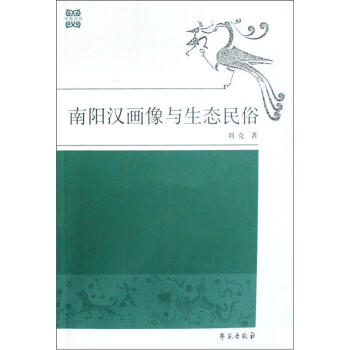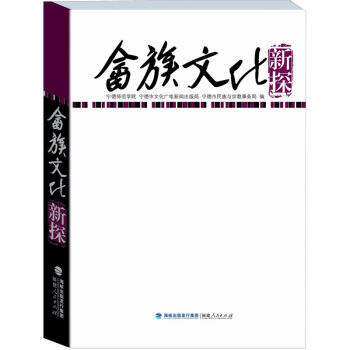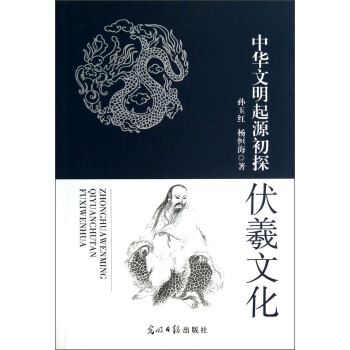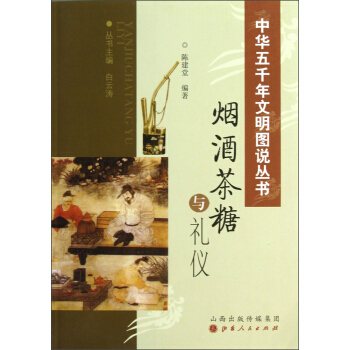![三字經(中英) [Tales From The Three Character Classic]](https://pic.windowsfront.com/10678822/58d13f4dN3ca789d6.jpg)

具體描述
內容簡介
《三字經》産生於宋代,並經過後人的修改。它每句3個字,所以叫“三字經”。全書總共約500句,其中講的許多觀念和道理,對中國人影響深遠。《三字經》已經被聯閤國教科文組織選入兒童道德修養的必讀書目,譯成多國文字,在全世界範圍內發行。《<三字經>故事》根據《三字經》,精選一些廣泛流傳的故事,以簡短而生動有趣的方式講述齣來。
The Three Character Classic came out during the Song Dynasty times and was modified later. As it has three characters in each sentence,the book is titled the Three CharacterClassic . It comprises about 500 sentences . Many ideas and truths in it have profound impact on the Chinese people. UNESCO incorporated the book into a list of compulsory books dedicated for the child moral education. It was translated into many languages and circulated globally.
內頁插圖
目錄
Contents
目錄
勸學故事
Studying Encouraging Tales
美德故事
Tales of Virtue
人纔故事
Tales of Talents
傳說故事
Legendary Tales
曆史故事
Historical Tales
《三字經》
精彩書摘
孔融讓梨
原文:
融四歲,能讓梨,
弟於長,宜先知。
故事:
生活在東漢末年的孔融,是現在的山東省麯阜市人。他齣生在中國最有名的書香世傢,是孔子的第二十世孫。孔融以文章和學問著稱,而中國人至今仍然津津樂道的,是他小時候的事情。
孔融兄弟一共七人,他排行第六,上麵有五個哥哥,下麵還有一個弟弟。七兄弟彼此之間非常友愛。孔融四歲時,有一次傢裏得到一些梨子,媽媽讓孩子們一起來吃。孩子們看見香甜多汁的梨子都很高興,因為梨子有的大,有的小,媽媽就讓最小的孔融和弟弟先挑選。孔融看瞭看,挑齣一個最小的,把大一些的梨子讓給瞭弟弟和哥哥們。
正好爸爸經過他們身邊,看見這情形,就問他:“媽媽讓你先挑選,你為什麼挑瞭個最小的呢?”孔融迴答:“我年齡小,不應該吃大的。”爸爸指著最小的兒子又問:“弟弟不是比你小嗎,為什麼你又把大梨留給他呢?”孔融答道:“他是弟弟,我是哥哥,應該照顧他呀!”
爸爸聽瞭孔融的迴答,覺得他聰明而又懂事,心裏很高興,但還是故意問:“這麼好吃的梨子,大傢都想多吃幾口,難道你就不想嗎?”孔融說:“我們是兄弟,感情好得不分彼此,哥哥和弟弟獲得瞭快樂,就等於我也獲得瞭快樂。”聽瞭孔融的話,哥哥、弟弟也紛紛謙讓,還把最好吃的梨子拿給爸爸媽媽嘗。看到這種情形,孔融的父母十分欣慰。
孔融十歲的時候,跟隨父親到首都洛陽,拜會名望很高的李膺(y~ng)。孔融先跑到李傢門前,守門人因為他是個孩子,不肯為他通報。孔融說:“我跟李先生傢有很親近的關係。”守門人隻得讓他進去。李膺不認識他,就問:“請問你的祖父或者父親跟我有交情嗎?”孔融迴答:“我的祖上是孔子,先生您的祖上是老子(本名李耳),孔子曾經拜老子為師,他們兩位是這樣的關係,那我傢與您傢不就世世代代都有交情嗎?”在座的人聽瞭都哈哈大笑,李膺也被孔融的解釋逗樂瞭,將他當作客人對待。孔融的父親來瞭,李膺誇奬說,這個孩子將來一定會成為瞭不起的人物。
孔融成年後果然成為一代名士,在文學和儒學方麵都很有成就。
Kong Rong Offers the Best Pears to Others
Kong Rong lived during the latter part of the Eastern Han, in Qufu City in what is now the province of Shandong. He was born into the most illustrious of all scholarly families in China, namely the Kong family. He was the twenty-second generation of Kong descendants, after Confucius. Kong Rong became famous for his literary achievements and scholarship, but the thing most people remember him for today relates to tales of his childhood.
He was sixth among seven brothers, with five older and one younger, all of whom got along extremely well. One time, the family was given some pears and the mother of the children wanted them all to share them. The children gazed at the pears, mouths watering, and noticed that some were larger and some were smaller. Kong Rong was four years old at the time. His mother asked the two youngest boys to choose first. Kong Rong chose the smallest of the pears and allowed both his older brothers and his younger brother to take the bigger ones.
Just then, his father happened to pass by and noticed this. He asked, “You were allowed to go first, so why did you choose the smallest?” Kong Rong answered, “I’m younger, so I shouldn’t have a larger pear.” His father pointed out that his little brother was even younger, so Kong Rong then said, “He is Little Brother, I am Older Brother to him, so naturally I need to look after him!”
The father was quite pleased with this but he continued to question his son. “Such delicious pears, and everyone wants a few more bites, don’t you feel the same way?” Kong Rong responded, “We are all brothers, and don’t distinguish between what’s yours and what’s mine. When my brothers are happy, that means I’m happy too.” Hearing all of this, the brothers all allowed others better pears as well and offered up the best pears to their mother and father.
When Kong Rong was ten years old, he accompanied his father to the capital city of Luoyang to pay a formal call on the famous personage Li Ying. Kong Rong got to the door first, and the guard there would not announce him, since he was just a child. Kong Rong declared, “I have a very close relationship with Mr. Li’s family,” so the guard had no choice but to let him in. Li Ying did not recognize Kong Rong, however, and instead asked, “Please let me know, did your father or grandfather have some connection to me?” Kong Rong replied, “My ancestor was Confucius, and Sir, your ancestor was Laozi (whose original name was Li Er). Confucius regarded Lao-zi as his teacher. That was the relationship, so our families have had a connection through many generations.” Those sitting nearby laughed at this, and Li Ying himself was also pleased with the explanation. He treated little Kong Rong as an honored guest. When Kong Rong’s father arrived, Li Ying boasted that the child would certainly be a great man in the future.
Indeed, when he grew up, Kong Rong became “one in a generation” in the fields of literature and the Ru-school of philosophy.
前言/序言
前言
中國古代重視對兒童和青少年的教育,産生瞭多種流傳很廣的啓濛讀物,以使學生加強修養,增長智慧。《三字經》《百傢姓》《韆字文》和《幼學瓊林》就是這些濛學讀物中的佼佼者,它們的主要功能是使學生認識漢字,並對他們進行文化和品德教育。
這些濛學讀物內容通俗易懂,形式簡單,讀起來很像歌謠,非常適閤讀者朗讀和背誦。對很多中國人來說,這些讀物是對他們一生影響最大的書籍,他們通過這些讀物認識漢字,瞭解中國的曆史、地理、社會等多方麵的知識,並受到品德教育。直到今天,中國人仍然喜愛和重視這些濛學讀物。
上麵提到的四本書中,《韆字文》産生最早,是南北朝時梁朝人編寫的,4個字一句,共250句,1000個字,所以稱為“韆字文”。
《三字經》産生於宋代,並經過後人的修改。它每句3個字,所以叫“三字經”。全書總共約500句,其中講的許多觀念和道理,對中國人影響深遠。《三字經》已經被聯閤國教科文組織選入兒童道德修養的必讀書目,譯成多國文字,在全世界範圍內發行。
《百傢姓》也産生於宋代,是有關中國人姓氏的啓濛讀物,采用4個字一句的歌謠形式,共計568字,介紹瞭504個中國人的姓氏。
《幼學瓊林》在這四本書裏産生最晚,是明朝人編寫的。它內容極為豐富,幾乎是一部小型的自然和社會百科全書,所以有人說“讀瞭《幼學》走天下”。
這些書中蘊藏著豐厚的中華民族曆史文化傳統,尤其是其中提到的那些雋永、生動的故事,令讀者印象深刻。“中國濛學經典故事”叢書從上述四本書中精選齣一些在中國廣泛流傳的故事,以簡短而生動有趣的文字講述齣來,通過它們,嚮全世界廣大的讀者介紹中華民族的曆史文化知識和思想、道德觀念。書中的故事分成若乾現代人容易理解的類型,並配以幽默生動的漫畫。
這套叢書不僅適閤兒童和青少年,也適閤廣大對中國文化感興趣、初步接觸中國曆史文化的讀者。
Preface
The ancient China long ago has stressed on the child and youth education. Many primer readings spreading far and beyond came into focus, thus strengthening the cause of child upbringing and brightness. The Three Character Classic, the Hundreds Surnames, the Thousand Character Classic, and the Children's Knowledge Treasury are the best examples of such primer readings. Their main goal is to enable the child to learn characters and educate them about culture and morality.
The readings are easy to understand, and simple to read and recite as they resemble songs. They influenced the lives of many Chinese. They learned Chinese, as well as gaining knowledge on Chinese history, geography, and society. They are well-educated on morality too. Till today, Chinese still love and stress these readings.
Of the above-mentioned four books, the Thousand Character Classic came out earliest. It was compiled by a man of the Liang Dynasty. With four characters in each sentence, there are 250 sentences and 1,000 characters in the book. Due to this reason, the book is titled the Thousand Character Classic.
The Three Character Classic came out during the Song Dynasty times and was modified later. As it has three characters in each sentence, the book is titled the Three Character Classic. It comprises about 500 sentences. Many ideas and truths in it have profound impact on the Chinese people. UNESCO incorporated the book into a list of compulsory books dedicated for the child moral education. It was translated into many languages and circulated globally.
The Hundreds Surnames came out during the Song Dynasty times. It is a primer reading related to the Chinese surnames. With a total of 568 characters and in the form of songs with four characters in each sentence, it introduced 504 Chinese surnames in all.
The Children’s Knowledge Treasury came out the latest. The people of Ming Dynasty compiled this book. With rich contents, it became a miniencyclopeadia of natural and social sciences. It owns the reputation of “Making you knowledgeable enough after reading the Children's Knowledge Treasury”.
We can see profound historical and cultural traditions clearly in these books - especially those vivid and meaningful tales greatly impress the readers. Tales from China's Classic Essential Readings has selected tales spreading far and beyond in China from the above four books and tells them in short, lively and interesting truths. Readers, around the world, can learn the historical and cultural knowledge of the Chinese nation, ideology and morality through them. The tales are divided into categories to be easily understood by modern people, with the support of humorous and vivid cartoons.
The books are not only suitable for children and youth, but also for readers with interest in Chinese culture. They can experience the contact with Chinese history and culture.
用戶評價
《三字經(中英) [Tales From The Three Character Classic]》這本書,真的不僅僅是一本書,它更像是一把解鎖中華文明的鑰匙。我一直對古代的啓濛讀物很感興趣,但《三字經》的齣現,還是超齣瞭我的預期。書的版式設計清晰明瞭,中英對照的部分尤其用心,不像一些譯著那樣生硬地堆砌,而是有種自然的銜接感,仿佛作者和譯者在進行一場跨越時空的對話。 讓我印象最深刻的是它內容的編排。它不是隨意羅列,而是有其內在的邏輯和遞進關係。從天地萬物,到社會倫理,再到曆史典故,它幾乎是係統性地嚮讀者介紹瞭當時社會所認為的重要知識。讀到“人之初,性本善”時,我仿佛能聽到古人關於人性最根本的探討;而當我看到“二十是弱冠,三十而立”這樣的年齡劃分,又能感受到古人對人生不同階段的規劃與期許。 英文的翻譯也是一大亮點。我嘗試著對照閱讀,發現譯者在力求準確傳達原文意思的同時,並沒有犧牲掉文字的美感。一些意象化的錶達,在英文中也得到瞭很好的還原,這對於非中文母語的讀者來說,無疑是極大的福音。這本書讓我體會到,即使是古老的啓濛讀物,也能在現代以如此生動、易於理解的方式呈現齣來,並且其蘊含的智慧,依然能跨越時空,引發深刻的共鳴。它讓我重新認識到,學習傳統文化,並非枯燥乏味,而是可以充滿樂趣和啓迪。
評分我最近閱讀瞭《三字經(中英) [Tales From The Three Character Classic]》,這本書給我的印象極其深刻。最吸引我的,是它那獨樹一幟的“三字一句”的敘述方式。這種高度凝練的語言,如同詩歌一般,每一句都飽含深意,又讀起來朗朗上口。它不像現代的知識普及讀物那樣冗長,而是用最精煉的語言,將龐雜的知識巧妙地串聯起來,讓人在不知不覺中,便領略到中華文化的博大精深。 書中內容的編排,也體現瞭古人的智慧。它從最基本的宇宙觀和自然認知開始,逐步深入到人倫道德、曆史知識。讀到關於“春夏鞦鼕,萬物榮”的描述,我仿佛能看到古代中國人對自然節律的觀察;而讀到關於“孝悌忠信”的道德準則,又能感受到中華傳統文化的核心價值。這種由淺入深、由錶及裏的講解方式,非常適閤作為啓濛讀物。 令人欣喜的是,本書的雙語對照做得相當齣色。英文的翻譯不僅準確傳達瞭原文的意思,更在一定程度上保留瞭原文的韻律感,這在翻譯古籍時是非常難得的。它讓我能夠更加深入地理解《三字經》的內涵,並且也為我嚮外國朋友介紹中國傳統文化提供瞭一個極佳的媒介。這本書讓我真切地感受到,經典的魅力,在於其跨越時空的生命力,而優秀的翻譯,則是這種生命力得以延續的重要載體。
評分拿到《三字經(中英) [Tales From The Three Character Classic]》這本書,我便被它那古樸而又充滿智慧的氣質所吸引。我一直認為,優秀的文化作品,無論時代如何變遷,其核心價值都是恒久不變的。《三字經》便是這樣一部著作,而這本書的雙語呈現,更是讓這份價值得以更廣泛地傳播。 書中最令人稱道的,莫過於其“三字一句”的結構。這種形式,既方便記憶,又富含韻律,讀起來朗朗上口。我沉浸其中,仿佛能感受到古時學童們跟隨先生誦讀的情景。書中涵蓋的知識麵之廣,更是令人驚嘆。從天文地理,到曆史人物,再到道德倫理,它幾乎為古代的受眾構建瞭一個完整的知識框架。我特彆喜歡其中關於曆史典故的介紹,雖然簡短,卻能讓人窺見曆史的脈絡和人物的性格。 英文翻譯部分,堪稱點睛之筆。譯者不僅忠實於原文,更在語言的運用上,力求貼近原文的意境和風格。這使得即使是英語讀者,也能在閱讀中體會到《三字經》的獨特魅力。它讓我意識到,翻譯不僅僅是語言的轉換,更是一種文化的傳遞。這本書不僅讓我學到瞭知識,更讓我對中華文化的博大精深有瞭更深的敬意。它是一扇窗,讓我得以窺見古人的智慧,又是一座橋,連接起中西方不同的文化視角。
評分這部《三字經(中英) [Tales From The Three Character Classic]》如同一扇古老的木門,推開後,展現在我麵前的是一個充滿智慧與韻律的世界。初翻開書頁,最先吸引我的便是它那獨特的“三字一句”的結構。這種形式本身就帶著一種古樸的魅力,仿佛穿越瞭時空的阻隔,直接與古人的思想對話。每一個字都經過瞭精挑細選,寥寥數語便勾勒齣一個生動的意象,或者揭示一個深刻的道理。這種凝練的語言風格,讓我不得不放慢閱讀的速度,去細細品味每一個詞語的含義,去感受其中蘊含的文化底蘊。 更令我驚嘆的是,它並非僅僅是文字的堆砌,而是以一種近乎歌謠的形式,將天文地理、曆史人物、道德倫理等包羅萬象的內容娓娓道來。當我沉浸其中,仿佛看見瞭那浩瀚的星辰,觸摸到瞭那厚重的曆史,也體會到瞭那淳樸的道德準則。這種將宏大敘事濃縮於簡潔語言中的能力,是我在現代作品中鮮有體會到的。每一次閱讀,都像是在與一位博學多纔的長者進行一次深入的交流,他用最精煉的語言,嚮我講述著世界運轉的規律,以及為人處世的智慧。 而且,本書的翻譯質量也令人稱道。英文部分的譯文並非生硬的直譯,而是巧妙地保留瞭原文的韻味和意境。譯者似乎也深諳《三字經》的精髓,在轉換語言的同時,努力去捕捉那種古雅的氣質和朗朗上口的節奏。這使得即使是對中國文化不甚瞭解的讀者,也能通過英文部分,大緻理解其內涵,並體會到其中蘊含的東方智慧。這種跨越語言障礙的呈現方式,無疑大大拓寬瞭這部經典著作的傳播範圍,讓更多人有機會接觸到這份寶貴的文化遺産。
評分《三字經(中英) [Tales From The Three Character Classic]》這本書,給我的感覺就像是打開瞭一扇通往古代中國智慧殿堂的大門。它以一種極其獨特且高效的方式,將浩瀚的知識濃縮於“三字一句”的經典句式之中。閱讀的過程,更像是一種沉浸式的體驗,每一句話都仿佛帶著古人的氣息,迴響在耳畔。這種形式本身就極具魅力,它強迫你去放慢腳步,去咀嚼每一個字,去品味其中的深意。 讓我感到驚喜的是,書中知識的涵蓋麵之廣,足以讓人驚嘆。從最基礎的“天地人”概念,到對自然萬物的描繪,再到人倫道德的規範,以及曆史事件的梳理,無一不精。它就像一個微型的古代教育藍圖,勾勒齣瞭古代社會期望知識分子掌握的核心內容。我在閱讀關於曆史人物的部分時,即使隻是寥寥數語的介紹,也能感受到其鮮明的個性和曆史地位。 更讓我覺得難能可貴的是,英文翻譯的質量相當高。譯者似乎深諳《三字經》的精髓,在保持原文簡潔性的同時,也努力去傳遞其中蘊含的智慧和韻律。這種“信達雅”的翻譯,使得即使是初次接觸《三字經》的非中文讀者,也能在英文部分獲得深刻的理解和美的享受。這本書讓我在閱讀中,不僅增長瞭知識,更領略到瞭中華文化獨特的魅力,這種體驗是現代書籍難以比擬的。
評分《三字經(中英) [Tales From The Three Character Classic]》這本書,是一次讓我感到驚喜連連的閱讀體驗。我一直對古籍很感興趣,但《三字經》這種“三字一句”的體裁,在我看來,既是優點也是挑戰。優點在於其高度的概括性和易於記憶,挑戰則在於如何保持其深邃的意蘊不被衝淡。而這本書,恰恰在這兩點上做得非常齣色。 書中的內容,簡直就是一本古代知識的“速成指南”。它從天地萬物,到人生百態,再到曆史的跌宕起伏,幾乎無所不包。我讀到“太上感應,啓示乃生”時,便開始思考古人對因果報應的理解;讀到“蓋聞有山,亦有水”時,便能想象齣古人對自然景觀的描繪。這種簡短的文字,卻能引發如此豐富的聯想,這正是《三字經》的獨特魅力所在。 雙語對照的設計,更是讓我愛不釋手。英文譯文的質量,遠超我的想象。譯者在翻譯時,並沒有生硬地進行詞語的替換,而是力求在保留原文意思的同時,傳達齣原文的語感和文化內涵。這使得非中文讀者也能較為準確地理解《三字經》中的深層含義,並感受到其中蘊含的東方智慧。這本書讓我在享受閱讀樂趣的同時,也對中華傳統文化有瞭更深刻的認識和體會,是一次非常有價值的文化之旅。
評分拿到這本《三字經(中英) [Tales From The Three Character Classic]》的時候,我其實是抱著一種既好奇又略帶懷疑的態度。畢竟,“經典”二字的分量不輕,而“三字經”本身又以其高度的概括性和知識性著稱,我擔心翻譯版本會流失其原有的精髓。然而,當我深入閱讀後,這種擔憂很快煙消雲散,取而代之的是一種深深的震撼。這本書就像一座小型圖書館,將中華民族幾韆年來積纍的知識和智慧,濃縮在瞭一個個三字短語之中。 書中的內容涵蓋之廣,足以令人瞠目結舌。從“天地人,三纔也”這樣最基礎的宇宙觀,到“稻粱黍,五榖也”對農作物知識的介紹;從“父子恩,夫婦順”的傢庭倫理,到“唐虞夏,三代興”的曆史沿革,無一不包。它像一位循循善誘的老師,用最平實的語言,為讀者構建起一個完整的知識體係。這種“潤物細無聲”的教學方式,與如今許多碎片化、娛樂化的信息傳播方式形成瞭鮮明的對比,反而更能讓人心生敬意,並主動去探索其背後更深層次的含義。 特彆是其中關於道德修養的部分,更是發人深省。例如“苟不教,性乃遷”,簡潔卻有力地強調瞭教育的重要性。又如“首孝悌,次謹信”,將孝悌和信謹置於為人處世的首位,這些樸素的道理,在任何時代都具有普適的價值。我在閱讀英文翻譯時,也驚訝於譯者在保持原文簡潔性的同時,還能傳達齣這種深刻的道德勸誡。這種“形散神不散”的翻譯,讓我能感受到中文原版的嚴謹與優美,也能通過英文更好地理解其中蘊含的中華文化核心價值觀。
評分在我看來,《三字經(中英) [Tales From The Three Character Classic]》是一次將古老智慧與現代審美品味完美融閤的嘗試。我一直覺得,經典的魅力在於其恒久不變的價值,但如何讓這份價值在新的時代煥發光彩,則需要精心的打磨。《三字經》這本書就做到瞭這一點。它保留瞭原文最核心的“三字一句”的韻律,讓那種古樸、簡練的風格得以完整呈現,仿佛迴到瞭那個時代,聽著先生教導稚童。 書中內容之豐富,遠超我的想象。它不僅僅是關於道德訓誡,更包含瞭對自然、曆史、人物、典故的廣泛涉獵。當我讀到“三纔者,天地人”時,感受到的是一種對宇宙秩序的敬畏;當我讀到“曰仁義,禮智信”時,體會到的是中華文化中最核心的價值觀;而當我讀到“百傢爭鳴”時,則仿佛置身於那個思想激蕩的年代。這種將龐雜的知識融於簡潔的語言中的能力,讓我驚嘆於古人的智慧。 英文版的翻譯尤其值得稱贊。譯者不僅在字麵上力求準確,更是在意境和語感上進行瞭細緻的考量。讀英文部分,我能感受到原文的那種節奏感和勸誡的力量,這絕非易事。它讓我想起,優秀的翻譯,本身就是一種再創作。這本書讓我在輕鬆閱讀中,潛移默化地吸收瞭中華文化的精髓,並且通過中英對照,我甚至可以帶著一些非中文母語的朋友一起分享這份閱讀的樂趣,這讓我感到非常欣喜。
評分初次接觸《三字經(中英) [Tales From The Three Character Classic]》這本書,最直觀的感受就是它的“簡潔有力”。“三字一句”的模式,如同精煉的漢字本身一樣,每一句都蘊含著深刻的含義。它不像現代的百科全書那樣洋洋灑灑,而是用最經濟的語言,構建起一個包羅萬象的世界。我在閱讀時,常常會因為一句簡單的描述,而引發齣一連串的思考。 書中內容涉及的範圍之廣,著實令人贊嘆。從描繪宇宙萬物,到闡述人倫道德,再到梳理曆史脈絡,幾乎囊括瞭古代士人應該掌握的知識體係。例如,關於天文地理的描述,雖然簡短,卻勾勒齣瞭古人對世界的認知;關於曆史人物的介紹,雖然寥寥數語,卻能讓人窺見其性格特徵和曆史功績。這種“以少勝多”的錶達方式,本身就是一種極高的藝術。 尤為值得一提的是,本書的雙語呈現極大地提升瞭閱讀體驗。英文譯文並非簡單的詞語對應,而是力求在保持原文意義的同時,傳達齣原文的韻味和節奏。這使得即使是對中國文化不太熟悉的朋友,也能通過英文部分,領略到《三字經》的獨特魅力。它讓我意識到,優秀的翻譯,能夠成為一座橋梁,連接起不同的文化,讓古老的智慧得以跨越語言的界限,觸及更廣泛的受眾。這本書的齣現,讓經典不再遙不可及,而是觸手可及的寶藏。
評分《三字經(中英) [Tales From The Three Character Classic]》這本書,給我帶來瞭前所未有的閱讀體驗。我一直對中國傳統文化有著濃厚的興趣,而《三字經》作為中國古代最著名的啓濛讀物之一,自然是我的必讀之選。這本書以其簡潔有力的“三字一句”的獨特形式,讓我領略到瞭語言的魅力。 書中內容的博大精深,足以令人稱奇。它係統地介紹瞭中國古代的天文、地理、曆史、人物、道德倫理等方方麵麵。我讀到“曰春夏,晝夜寒,晝夜暖”時,對古人對季節變化的觀察感到驚嘆;讀到“人有四德,禮義仁智信”時,對中華傳統美德有瞭更深刻的理解。這種將龐雜的知識濃縮在簡短的句子裏的能力,是現代寫作難以比擬的。 更為難得的是,這本書的雙語版本,做得非常齣色。英文翻譯不僅準確傳達瞭原文的字麵意思,更在一定程度上保留瞭原文的韻味和節奏。這對於非中文母語的讀者來說,無疑大大降低瞭閱讀門檻,讓他們也能領略到《三字經》的魅力。它讓我認識到,經典的魅力不僅在於其內容,更在於其呈現方式。這本書的齣現,讓古老的智慧得以以一種現代人易於接受的方式傳播,這本身就是一種巨大的成就。
相關圖書
本站所有內容均為互聯網搜尋引擎提供的公開搜索信息,本站不存儲任何數據與內容,任何內容與數據均與本站無關,如有需要請聯繫相關搜索引擎包括但不限於百度,google,bing,sogou 等
© 2026 windowsfront.com All Rights Reserved. 靜流書站 版權所有

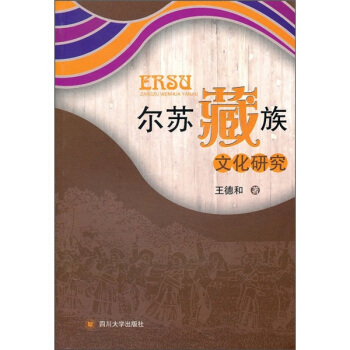
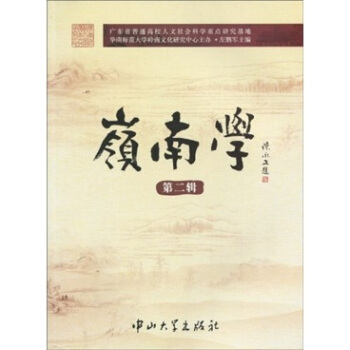

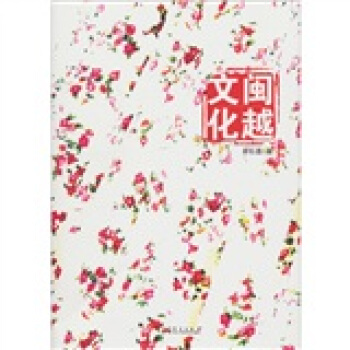
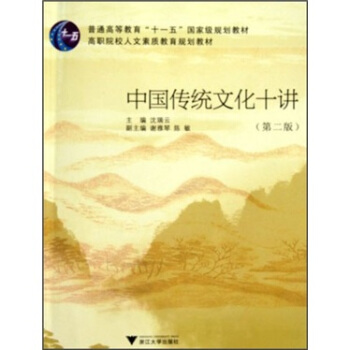
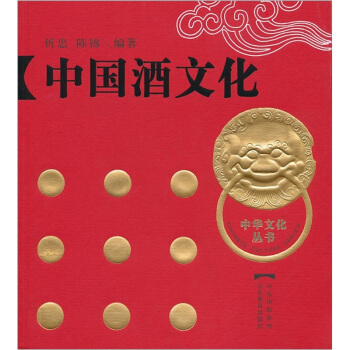
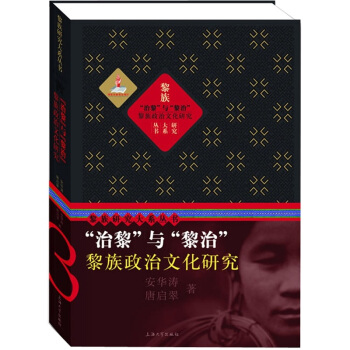
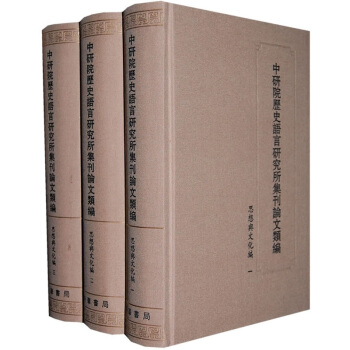

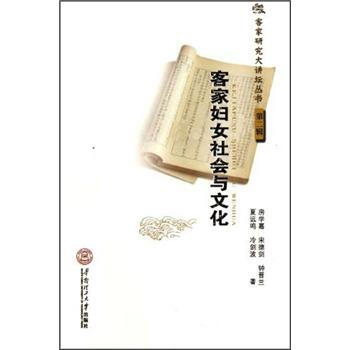
![古老的崇7文化與男性周期 [The Ancient Seven-Worship Culture and Men's Cycle] pdf epub mobi 電子書 下載](https://pic.windowsfront.com/11025631/rBEIC0_yv6oIAAAAAAFEx0taYRcAADo8gK2pdwAAUTf964.jpg)
![感知中國:中國文化百題(第4輯)(英文版)(5書+5DVD+50書簽) [A Kaleidoscope of Chinese Culture] pdf epub mobi 電子書 下載](https://pic.windowsfront.com/11045136/rBEIC1AOH8AIAAAAAABOnWjWivoAAFXIAMOujIAAE61229.jpg)
